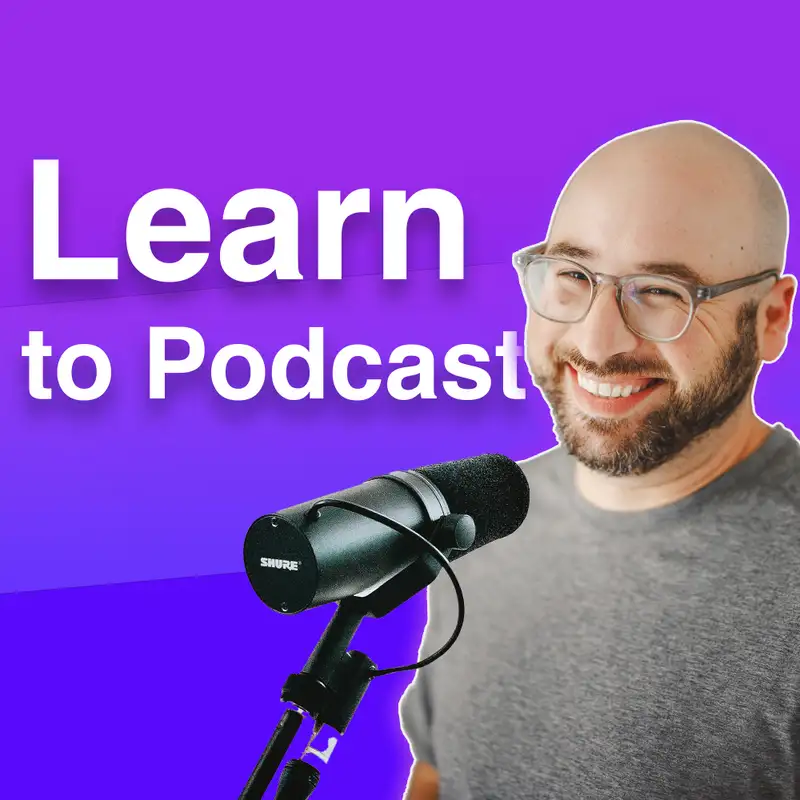
Level Up Your Podcast with Storytelling: Writing Engaging Scripts for Maximum Impact
===
[00:00:00]
[00:00:24] Introduction to Podcast Scripting and Storytelling
---
[00:00:24] Welcome back to learn to podcast the show that will teach you everything you need to know to create, grow, and monetize a successful podcast. I'm your host, Scott Wyden Kivowitz. And in this episode, we're going to talk about scripting and storytelling. This includes writing compelling scripts, storytelling techniques for podcasting and balancing preparation with spontaneity.
[00:00:47] The Importance of Scripting in Podcasting
---
[00:00:47] Your script is the roadmap for your podcast episode.
[00:00:51] It helps you stay on track and deliver content in a clear and concise way.
[00:00:55] When writing a script, keep your target audience in mind. What kind of [00:01:00] stories do they want to hear? What information do they need?
[00:01:03] Tips for Writing Compelling Stories
---
[00:01:03] Here are a few tips for writing compelling stories. One: start with a strong cook. This will grab your listeners attention and make them want to keep listening. Two: use vivid language and imagery, help your listeners to visualize the story that you are telling. Three: be concise
[00:01:21] and to the point. Don't ramble on or go off on tangents if you can avoid it. Number four: use transitions to move from one scene to the next one story part of the story to the next, this will help your listeners to follow along. Number five: practice your script out loud before you record it, this will help you to deliver it in a natural and engaging way.
[00:01:46] The Power of Storytelling in Podcasts
---
[00:01:46] Podcasts are a great medium for storytelling.
[00:01:49] They allow you to share your stories with a wide audience and connect with people on a personal level.
[00:01:54] Storytelling Techniques for Podcasts
---
[00:01:54] Here are a few storytelling techniques that you can use in your podcast [00:02:00] episodes. Use anecdotes and personal stories. This is a great way to connect with your listeners and make them feel like they are part of your story. Use dialogue to bring characters to life.
[00:02:11] This will help your listeners to feel like they're right in the story with you.
[00:02:15] Use descriptive language to paint a picture and your listeners minds, this will help them to visualize the setting and the characters. You suspense intention to keep your listeners engaged. This will make them want to keep listening to find out what happens next.
[00:02:31] Balancing Preparation and Spontaneity
---
[00:02:31] It's important to strike a balance between preparation and spontaneity in your podcast episodes.
[00:02:36] You don't want to be so scripted that your episodes sound robotic and unnatural, but you also don't want to be so spontaneous that you forget what you were going to say or go off on these tangents.
[00:02:48] Tips for Balancing Preparation with Spontaneity
---
[00:02:48] Now, here are a few tips for balancing preparation with spontaneity. A basic outline for each episode.
[00:02:55] This will give you the framework to work with. But it will [00:03:00] also allow you to be flexible and spontaneous. It'll also allow you to be flexible and spontaneous. Practice or script out loud as I mentioned before, but don't be afraid to deviate from it. If you feel inspired, be prepared to improvise. If something unexpected happens. Scripting and storytelling are essential skills for podcasters.
[00:03:22] By following the tips. In this episode, you can write compelling scripts and tell engaging stories that will capture your listeners attention.
[00:03:30] Conclusion: Experiment with Scripting and Storytelling Techniques
---
[00:03:30] I encourage you to experiment with different scripting techniques and find storytelling approaches and scripting approaches that work best for you and your show. Thank you for listening.
[00:03:41] And I look forward to joining you on this journey to podcasting success.
[00:03:46]
Creators and Guests
